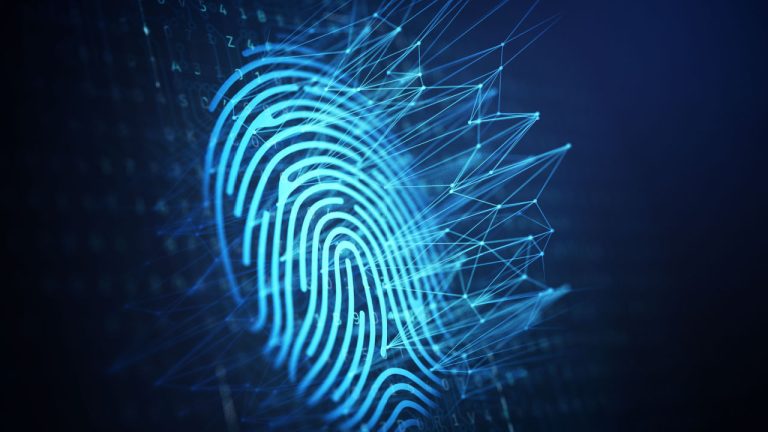 Microstrategy has introduced a new enterprise decentralized identity platform, Microstrategy Orange, during the Bitcoin for Corporations segment at Microstrategy World 2024 event in Las Vegas. Microstrategy Intends to Leverage the Bitcoin Blockchain for Identity Management According to an unofficial draft on Github, the Orange platform leverages the Bitcoin Inscription DID method (did:btc), which incorporates data […]
Microstrategy has introduced a new enterprise decentralized identity platform, Microstrategy Orange, during the Bitcoin for Corporations segment at Microstrategy World 2024 event in Las Vegas. Microstrategy Intends to Leverage the Bitcoin Blockchain for Identity Management According to an unofficial draft on Github, the Orange platform leverages the Bitcoin Inscription DID method (did:btc), which incorporates data […]
Argentina’s capital city is teaming up with Self-Sovereign Digital Identity (SSI) protocol QuarkID to launch a digital identification service that uses the layer-2 blockchain zkSync Era. According to a press release, Buenos Aires will roll out the blockchain-based identification initiative for its 15 million residents in October. Citizens living in the city can download the […]
The post South American City of 15,000,000 To Launch Blockchain-Based Digital Identification Services appeared first on The Daily Hodl.

Worldcoin could make it easier to create digital identities for people worldwide. And even if it fails, more projects like it are coming.
All eyes have been on Worldcoin (WLD) since the July 24 launch of its “World ID” system. The issues associated with the launch have been well reported at this juncture. They include possible onboarding security risks along with Worldcoin’s use of biometric data, which is now under investigation by governments in several countries — including the United Kingdom, France and Argentina.
In the tech industry, where many of the most significant innovations of the past few decades have occurred, there is often a tension between the drive to innovate and the need to consider ethical implications. As technologies like machine learning, facial recognition and big data analytics become more advanced, the ethical stakes also rise.
In some cases, criticism from external analysts, journalists or ethicists can actually lead to positive outcomes by encouraging companies to consider ethical implications and perhaps even alter their business practices. In other cases, it can create a backlash that stymies innovation or leads to increased regulation. Either way, ethical and social concerns are a significant aspect of the landscape that innovators must navigate, and these concerns are often magnified when the innovations touch on sensitive areas like privacy, autonomy and social justice.
Related: Worldcoin controversy explained in latest Cointelegraph Report
So, while innovators often face criticism on multiple fronts — whether it’s questioning the feasibility of their ideas, their potential to disrupt markets or the ethical implications of their work — their relationship with external observers is complex and multifaceted. Criticism can be both a hurdle and a constructive force, depending on the situation.
Rather than argue the merits of Worldcoin specifically, I would argue that we risk severely delaying technological advancement if we criticize it to death instead of criticizing it to improve.
Worldcoin wants to solve the digital identity issue, and its approach to doing so is bypassing governments. A solution to interoperable, accessible digital identity means you do not have to worry if you lose your identity documents, or if you are no longer able to access them because of changes within your home country.
Sam Altman has launched Worldcoin:
— cryptunez (@cryptunez) July 28, 2023
1. An orb pays you to scan your eyeballs ️
2. Your iris code gets added to a merkle tree
3. ZKPs verify personhood without revealing your identity
Worldcoin is a novel attempt of solving the sybil problem: pic.twitter.com/H34XmmPrsS
Having worked with the United Nations in the past on solutions for distributed digital identity, I know that a well-designed system could fight corruption, resist identity replication, reduce fraud, and protect citizens against censorship. This is especially helpful for people who receive support from supranational organizations. A digital identity that can never expire, and can be accessed and read all over the world, is not just convenient. It can be life-saving.
It is easy enough to make the argument for this system on the fact that while a single government may do identity well, there is no seamless system worldwide for identity. Further, no significant progress has been made by any consortium of governments to use technology to address this issue. Worldcoin saw an opportunity to address this issue privately — and now it is paying the price of being the first mover.
This evokes a memory of another Web3 first mover. Libra was a similarly ambitious project that sought to solve market failures with a private-sector solution. In this case, Libra attempted to provide stable money, which is, by most definitions, a public service. In doing so, it would have bypassed central banks.
One of the reasons we don’t have this system working today is because Libra was disbanded after severe scrutiny. Some of its failings could have stemmed from being tied to a well-known founder who has not safeguarded our data or best interests well — Mark Zuckerberg. With the benefit of hindsight, we can say for sure that the minds working on the project were not Zuckerberg. And while stymied at Libra, they have attempted to solve this in different ways at other companies — from Circle (which has another stablecoin) to Lightspark (which facilitates Lightning payments).

Progress has not necessarily been lost, but it has been changed. We are not where we could be — in a world with more stable and accessible payment rails for everyone. Further to that, in the intervening years, there were significant and damaging attacks on the merits of the Libra project. These attacks still affect stablecoins today.
So, in response to such an onslaught of criticism, somebody may want Worldcoin to go the route of Libra. It may fail not simply because of missteps by the founders. This is a reasonable reason to fail, and it is the journey of entrepreneurship. No, I fear it may fail because it is attempting to build something we have no paradigm for, and that creates a breeding ground for “punching down” on the entire technology stack that digital identity will require (and that we will all require if we want secure digital identity in our lifetimes).
To pause my pessimistic view for a moment: I am sure that even if Worldcoin fails, progress will be made on digital identity. But the fear and suspicion will not fade quickly, which could seriously impact the uptake by the communities that need digital identity the most.
Yes, there’s a trend of private sector technologies trying to replace public services. Depending on how effectively your government works for you, you will have different opinions on the merits of this choice. But we should remember that the private sector can be better at problem-solving, especially when it comes to efficiently applying new technologies at speed.
Related: The world could be facing a dark future thanks to CBDCs
No, a private company should not have the last word on identity — but if it has already invested in the infrastructure and technology, should we not build on its efforts? It has achieved groundbreaking innovation in the area of ID management and storage and processing. If it is open to creating a more polished “open innovation model,” we could use this work as a way to improve several global systems. One that comes to mind is global voting. Governance still remains firmly localized, for example, even as we face global challenges like climate change.
Changing a core system — such as voting — would require a mindset change entirely in how we view, use and trust our systems. But many of us started this journey when we discovered blockchain. In 2009, we wondered how our society would change in a post-centralized world. How can we trust a system that isn’t controlled by just us, our governments or one company? Now, we face the same question. How is our society going to change in a post-proof world? How do we operate in a system where we can be sure proof exists but that we won’t ever see or know it ourselves?
This is the discussion we need to be having about Worldcoin — less about the company, less about the founders and far more about the system it (or someone else) will build. Because Worldcoin is not the last ambitious project that seeks to solve the fragmented systems we operate in — others will follow it. And we should pose the same questions to them: How are you safeguarding privacy? How are you incentivizing users without taking advantage of their economic situation? What is your governance mechanism? How robust is it? Why should we choose you, and how does your business model benefit if we do? What impact will you have on our world, positively or negatively, and what partners, advisers, overseers and auditors should be in place to help mitigate it?
We should soon pose these questions to Worldcoin with an eye toward a future where it, or someone else, will successfully implement this system.
In closing, it is easy to attack Worldcoin, but we should all remain mindful that some authorities, especially those with a vested interest in not providing digital identity to their citizens, will feel threatened by the borderlessness of this initiative. Not everyone criticizing Worldcoin is doing so for the sake of improving it. I challenge us to think bigger. If this system, and a post-proof world, is to be built, let us build it better now.
This article is for general information purposes and is not intended to be and should not be taken as legal or investment advice. The views, thoughts and opinions expressed here are the author’s alone and do not necessarily reflect or represent the views and opinions of Cointelegraph.

The Shiba Inu (SHIB) ecosystem will make blockchain-based digital identity part of the project’s future developments. Shib, the ecosystem’s official Twitter account, says that lead developer Shytoshi Kusama is planning to integrate Self-Sovereign Identity (SSI) in all Shiba Inu projects. SSI is a blockchain-based digital identity solution akin to passports for proving identity in the […]
The post Shiba Inu (SHIB) Plans To Integrate Digital Identities Into Its Ecosystem’s Projects, Says Developer appeared first on The Daily Hodl.
 Zambia is set to complete real-life crypto usage simulations by the end of June, Felix Mutati, the country’s science and technology minister has said. The Zambian minister said his country is seeking a balance between innovation and consumer protection. Zambia Needs to Build Digital Infrastructure Before It Introduces Crypto According to the Zambian minister of […]
Zambia is set to complete real-life crypto usage simulations by the end of June, Felix Mutati, the country’s science and technology minister has said. The Zambian minister said his country is seeking a balance between innovation and consumer protection. Zambia Needs to Build Digital Infrastructure Before It Introduces Crypto According to the Zambian minister of […] The cryptocurrency hardware wallet manufacturer Ledger has raised €100 million ($109 million) in funding, according to the company’s disclosure on Thursday. Ledger CEO Pascal Gauthier says there has been significant demand for hardware wallets. He added, “2023 is even better for us because now you can’t even leave money at a Swiss bank.” Ledger to […]
The cryptocurrency hardware wallet manufacturer Ledger has raised €100 million ($109 million) in funding, according to the company’s disclosure on Thursday. Ledger CEO Pascal Gauthier says there has been significant demand for hardware wallets. He added, “2023 is even better for us because now you can’t even leave money at a Swiss bank.” Ledger to […] According to Sharering, a blockchain-based platform enabling the creation and use of “self-sovereign” verifiable credentials, millions of potential world wide web users are still disconnected from the internet because they lack required or verifiable identities, among other things. Without such verifiable identities or credentials, many disadvantaged groups, including refugees, are thus precluded from accessing information […]
According to Sharering, a blockchain-based platform enabling the creation and use of “self-sovereign” verifiable credentials, millions of potential world wide web users are still disconnected from the internet because they lack required or verifiable identities, among other things. Without such verifiable identities or credentials, many disadvantaged groups, including refugees, are thus precluded from accessing information […] Financial giant JPMorgan has announced it will open a new blockchain innovation lab in Greece. The lab will be focused on the development of applications on top of Onyx, the blockchain platform launched by the bank in 2020, and on digital identity solutions. JPMorgan to Push Blockchain Development in New Innovation Lab JPMorgan, the investment […]
Financial giant JPMorgan has announced it will open a new blockchain innovation lab in Greece. The lab will be focused on the development of applications on top of Onyx, the blockchain platform launched by the bank in 2020, and on digital identity solutions. JPMorgan to Push Blockchain Development in New Innovation Lab JPMorgan, the investment […] Opera, the Web3 browser, and Unstoppable Domains, the non-fungible token (NFT) domain provider, have announced that users can now access all domain endings, including .x, .crypto, and .nft, across Opera’s browsers. Additionally, Opera and Unstoppable are offering a free .nft domain that matches an Opera user’s Twitter handle after account verification. Opera Expands Web3 Capabilities […]
Opera, the Web3 browser, and Unstoppable Domains, the non-fungible token (NFT) domain provider, have announced that users can now access all domain endings, including .x, .crypto, and .nft, across Opera’s browsers. Additionally, Opera and Unstoppable are offering a free .nft domain that matches an Opera user’s Twitter handle after account verification. Opera Expands Web3 Capabilities […]
If Wyoming Governor Mark Gordon signs the bill, from July 1 individuals in Wyoming will be protected from being forced to divulge their private keys, with one limited exception.
Wyoming lawmakers have passed a bill that will prohibit courts in the state from forcing someone to disclose their digital asset private keys, with one minor exception.
The bill was passed by a vote of 41-13 in the Wyoming House of Representatives on Feb. 15, a day after passing 31-0 in the Wyoming Senate.
If the bill is approved by Wyoming Governor Mark Gordon, the law will come into effect on July 1.

“No person shall be compelled to produce a private key or make a private key known to any other person in any civil, criminal, administrative, legislative or other proceeding[s]” in the state of Wyoming, the incoming law reads.
The law includes any private keys associated with digital assets, one’s digital identity or any other interests or rights to which the private key provides.
BIG STUFF--today the #Wyoming legislature passed a bill prohibiting compelled disclosure of private keys (w/ some exceptions), by a veto-proof majority! CONGRATS to @rothfuss @JaredSOlsen @itsmikeyin & special thx @ChristopherA. Next stop @governorgordonhttps://t.co/qu0OoWMzKO
— Caitlin Long ⚡️ (@CaitlinLong_) February 16, 2023
The minor exception involves when a public key is unavailable or is unable to disclose details of the digital asset, digital identity or other interest or right.
However, the act also states that the new law will not bar one from being compelled “to produce, sell, transfer, convey or disclose a digital asset, digital identity or other interest or right” that a private key could provide access to.
It also doesn’t prevent one from being compelled to “disclose information about the digital asset, digital identity or other interest or right.”
The new law — W.S. 34-29-107 — will be titled “Production of private keys; prohibition.”
The private keys legislation comes under Chapter 29 — Digital Assets which is a subset of Title 34 — Property, Conveyances and Security Transactions.
Related: Death and self-custody: How to pass on your crypto when you die
The passing of the bill comes as the private key law has been in the works since as early as September 2019.
Wyoming has long been touted as one of the most crypto-friendly states in the U.S.
It was the first state in the U.S. to declare a decentralized autonomous organization (DAO) as a limited liability company (LLC) in July 2021, and has previously considered a state-issued stablecoin in February 2022 — however, it appears that those endeavors haven’t progressed too much since then.